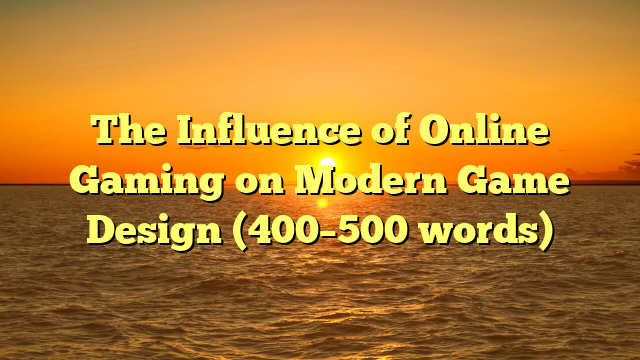Online gaming has profoundly shaped modern game design. What began as a niche experimental field has become a driving force behind how mahjong 288 games are structured, monetized, and updated. One of the earliest influences came from MUDs and MMOs, which introduced persistent worlds, quest systems, and social structures. These elements later became standard features in many offline games as well.
A key innovation driven by online gaming is the concept of continuous updates. Instead of a game being released in a final state, developers now treat games as evolving services. This “games as a service” model emerged from MMORPGs, where regular updates, expansions, and events were necessary to keep players engaged. Today, almost every major online game—whether shooters, sports titles, or strategy games—relies on ongoing content to maintain player interest.
Online gaming also influenced progression systems. Experience points, daily quests, season passes, and achievement systems all originate from early online titles. These mechanics drive player engagement by creating long-term goals and rewarding consistent play. Even single-player games now adopt similar structures.
Multiplayer matchmaking and ranking systems are another major legacy. Competitive online games require balanced matchmaking, leading to the development of ELO-based ranking systems, skill-based matchups, and automated lobbies. These systems ensure fairness and accessibility, shaping how competitive gaming functions across genres.
Social interaction has also influenced design. Games now include friend lists, chat systems, emotes, and guild structures as standard features. Developers increasingly view games as social platforms, not just entertainment products.
Finally, online gaming transformed monetization. Microtransactions, cosmetic purchases, downloadable content, and season passes became widespread due to online ecosystems. While often controversial, these systems sustain long-term development and allow free-to-play models to flourish.
Overall, online gaming reshaped game design into a dynamic, community-focused, constantly evolving experience that continues to influence the entire industry.
